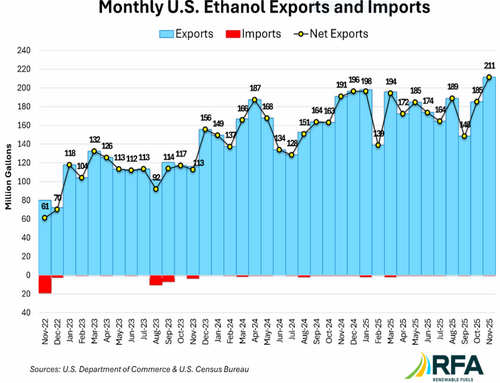Clark Kauffman, Iowa Capital Dispatch
An Iowa agriculture company accused of operating a billion-dollar check-kiting scheme is being sued by a lender that says 110,000 piglets are at risk of starvation.
Compeer Financial of Minnesota is suing Sunterra Farms Iowa Inc., Sunwold Farms Inc., and Lariagra Farms South Inc. in U.S. District Court. Compeer alleges that the three defendants operate extensive swine operations in Iowa and South Dakota and have granted Compeer, their lender, exclusive security over their collective assets.
Compeer is asking the court to appoint a receiver to take control of the defendants’ assets so that Compeer can protect its collateral by continuing to provide for the feeding and care of 110,000 head of swine.
The defendant companies are allegedly operated by the Price family of South Dakota, including Ray, Art and Glen Price, who own and manage the 110,000 head of swine in 54 barns located in and around Yankton County, South Dakota. The swine — which are in various stages of growth and are owned by either Sunterra or Lariagra — are among 500,000 hogs managed by Sunterra.
Need a break? Play the USA TODAY Daily Crossword Puzzle.
Suit alleges check-kiting scheme to hide millions in debt
Compeer claims in the lawsuit that because of what it calls “the long-running fraud” perpetrated by the defendant companies, they cannot be trusted to operate their businesses and protect their assets, including the swine in Yankton County.
According to the lawsuit, the three defendant companies have engaged in check kiting — a fraudulent practice in which a company draws checks from one bank account for deposit in another bank account that it controls, when neither account has sufficient funds to cover the checks. The process takes advantage of the delays in processing checks between banks, allowing one account or another to continually show credits for funds that have yet to be collected.
Compeer’s lawsuit claims that earlier this year, the defendant companies were issuing each other numerous checks, in nearly identical amounts, on a daily basis — with some checks ranging from $800,000 to $990,000, an amount just below the threshold that would trigger scrutiny from regulators.
The transactions had the effect of creating phony positive account balances that caused Compeer to pay the companies interest, the lawsuit claims.
Compeer alleges that on Feb. 12, 2025, the day after it asked Ray Price, the CEO of the defendant companies, about the transactions, it received a batch of checks totaling $9 million drawn one of the defendants’ Canadian bank accounts for deposit into the defendants’ account with Compeer.
Later that day, the lawsuit claims, Ray Price admitted that the checks were intended only to prevent the Compeer account from being overdrawn, and acknowledged that if Compeer attempted to deposit the $9 million it would trigger a corresponding overdraft in the Canadian account. According to the lawsuit, Price admitted that what the companies were doing was “wrong.”
About 24 hours later, the lawsuit claims, Price spoke to Compeer personnel and said the Canadian account was overdrawn by roughly $21 million, adding that he needed Compeer to immediately “send the money back” to the Canadian bank to cover the overdraft. Compeer refused.
In late February, the lawsuit alleges, Compeer learned the Canadian bank had rejected 65 checks totaling $59.9 million previously credited by Compeer to the defendants’ accounts. As a result, the defendants’ $21 million positive cash balance at Compeer was instantly wiped out and replaced with a $36 million debt owed by the defendants to Compeer.
In its lawsuit, Compeer alleges that before the check-kiting scheme collapsed, it involved “billions of dollars” in fraudulent transactions.
To read the entire report click here.


